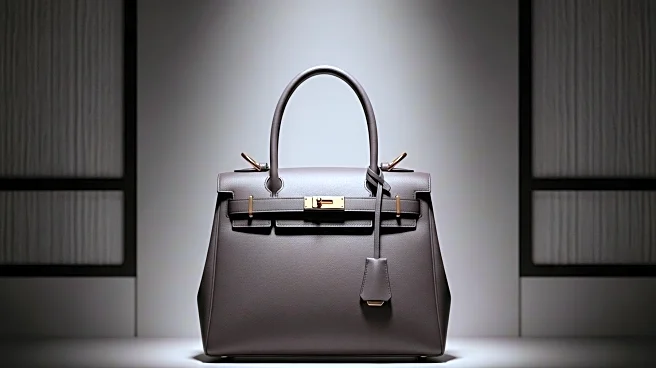What's Happening?
Consumer plaintiffs Tina Cavalleri and Mark Glinoga have filed an appeal against the dismissal of their antitrust lawsuit concerning Hermès' allocation system for Birkin bags. The case, initially filed in March 2024, was dismissed by Judge James Donato of the Northern District of California on September 17, 2025. The plaintiffs argue that Hermès' system constitutes an anticompetitive practice under the Sherman Act, alleging that the luxury brand's prioritization of top-spending customers exerts market power in a single-brand context. The district court dismissed the case, citing insufficient evidence of a relevant product market and market power, as well as a lack of injury to competition. The plaintiffs are now seeking to overturn this decision in the U.S. Court of Appeals for the Ninth Circuit.
Why It's Important?
The appeal raises significant questions about the intersection of luxury branding and antitrust law. If successful, it could redefine how scarcity and exclusivity are treated under antitrust regulations, potentially impacting luxury brands' strategies. Hermès, known for its controlled access and cultivated scarcity, could face scrutiny over its allocation practices, which may influence how luxury goods are marketed and sold. The case could set a precedent for how antitrust law addresses luxury goods' market power, affecting both consumer access and competitive dynamics within the luxury sector.
What's Next?
The Ninth Circuit will review whether the district court correctly applied antitrust pleading standards to the luxury-scarcity context. The plaintiffs are expected to argue that the Birkin bag's unique market position justifies a single-brand market definition and that Hermès' practices constitute coercion under antitrust law. The outcome could lead to further discovery into Hermès' allocation practices and potentially reshape legal interpretations of luxury market strategies.
Beyond the Headlines
This case challenges the legal boundaries of luxury branding strategies, questioning whether controlled scarcity can be considered a form of market power. The implications extend beyond Hermès, potentially affecting how luxury brands manage exclusivity and consumer relationships. The Ninth Circuit's decision could influence future antitrust scrutiny of luxury goods, balancing brand prestige with market access.








